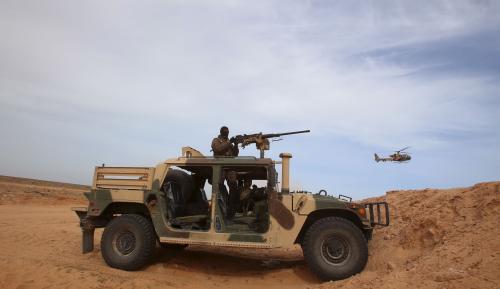Introduction
In recent months, top officials in the US government have been calling attention to the reported progress in Iraq. According to current data, positive trends do in fact exist. This is not meant to congratulate the Bush administration-whatever success the surge is having now makes one wonder what might have been possible had we followed the advice of General Eric Shinseki and others who counseled a robust invasion and occupation force from the start. The situation in Iraq is hardly good; it is simply much better than it was last year. But the stakes in achieving a semblance of stability in Iraq are so high for the region and the world that even those who do not support this administration should welcome the favorable developments.
The fact is that trend lines in Iraq are headed in the right direction. The “surge” of US forces in early 2007 has fostered real improvements in security throughout most of the country and has helped foster an environment in which political and economic progress is possible. These facts, however, are no cause for complacency. The situation in 2006 was so disastrous that vast improvements only resulted in the mediocre situation we are in now. Many Iraqis, particularly those in power, have been slow to take advantage of decreased levels of violence to cross ethno-sectarian lines and allow for the political and economic growth requisite for sustainable stability. It remains unclear whether or not Iraq will truly turn the corner. The kind of improvements we have seen on the ground will not suffice to produce a viable stability or exit strategy. Ultimately, reconciliation, or at least accommodation, among Sunni and Shia Arabs and Kurds is needed if the country is to hold together as US and coalition forces begin to leave in 2008 and thereafter.
It is nevertheless clear that important developments are being made in all sectors of Iraqi society. Though progress has been uneven and somewhat inconsistent, Iraq is not the lost cause it appeared to be only 18 months ago, and there is even a glimmer of hope for longer term stability. This article will present some of the raw data to give a more complete picture of the situation in Iraq, and to help determine what strategies are still possible, or not possible, in the region. The analyses are based on four years of work at the Brookings Institution tracking trends in Iraq from reputable databases, using independent analytical judgments to determine the most trustworthy and transparent sources. Indicators of progress are organized into the broad categories of security, politics, and economics.



Commentary
The Road Ahead: Progress and Challenges in Iraq
June 19, 2008